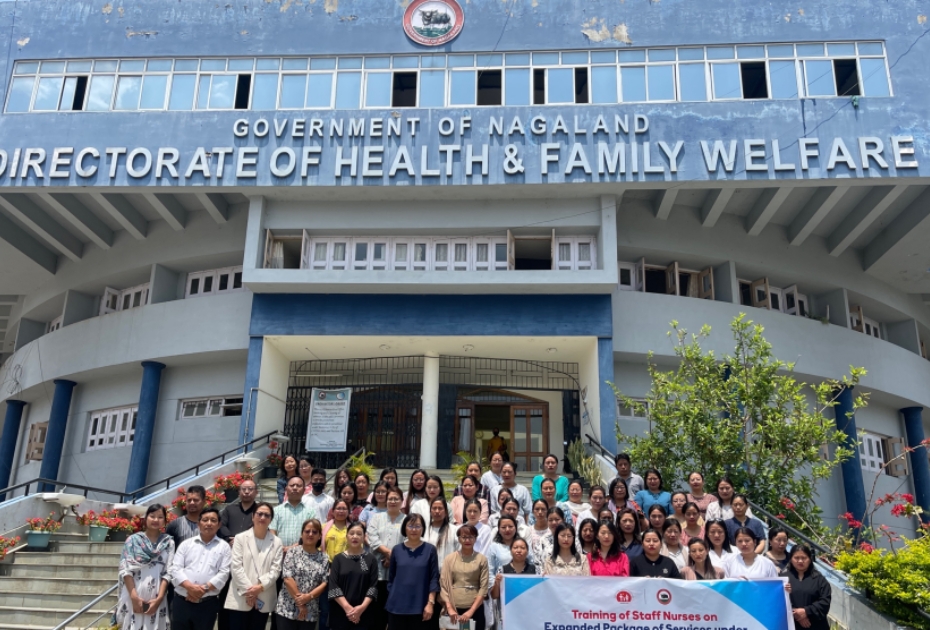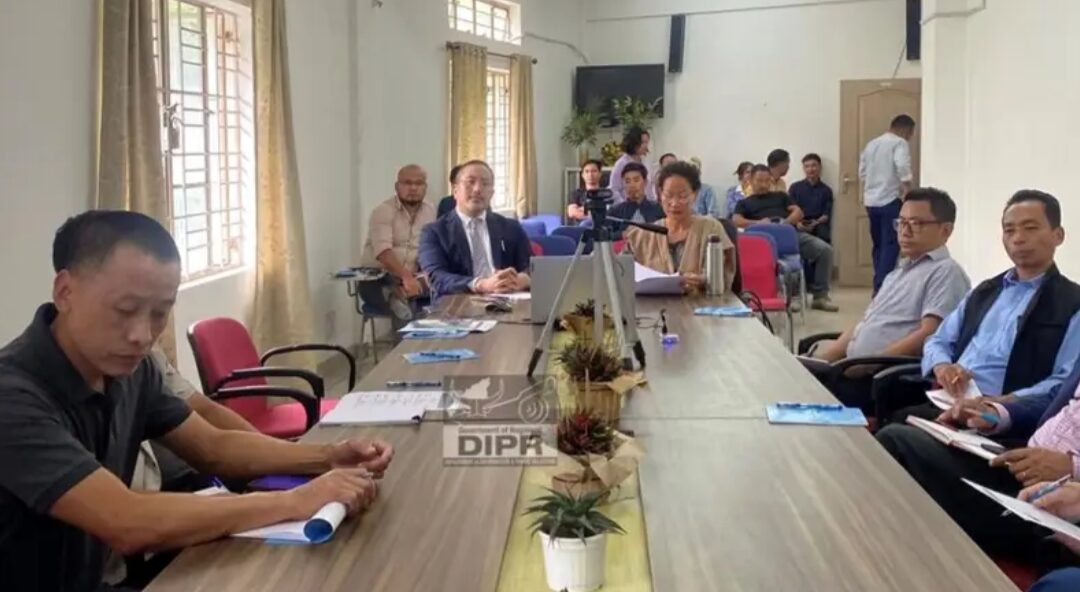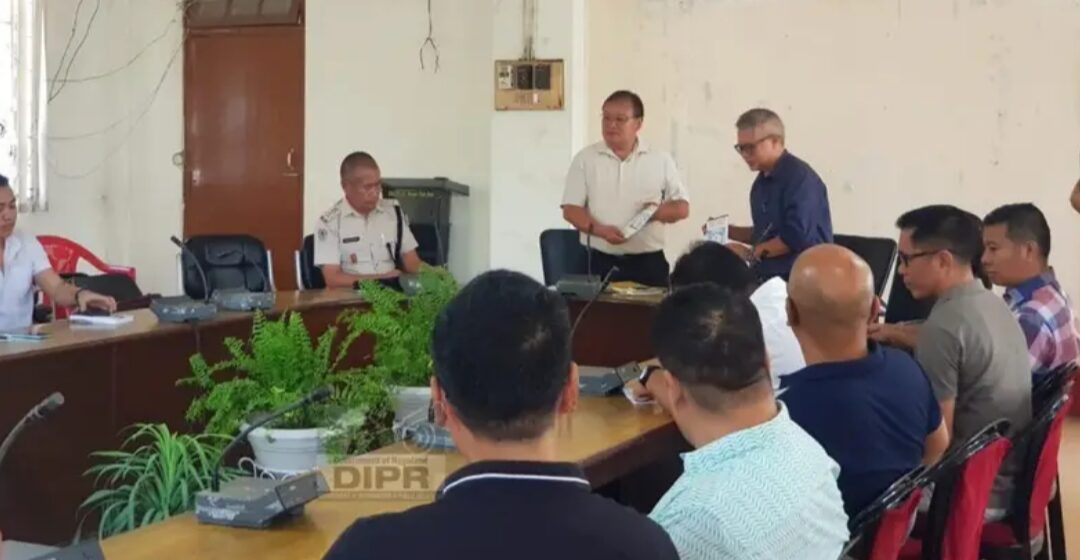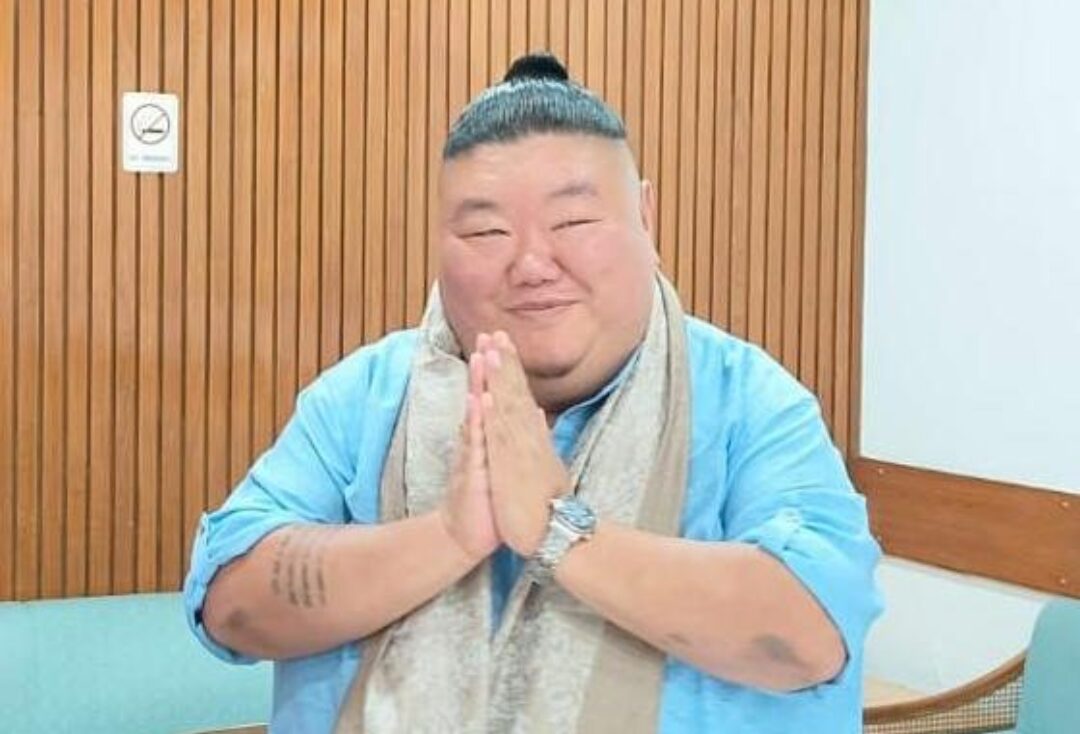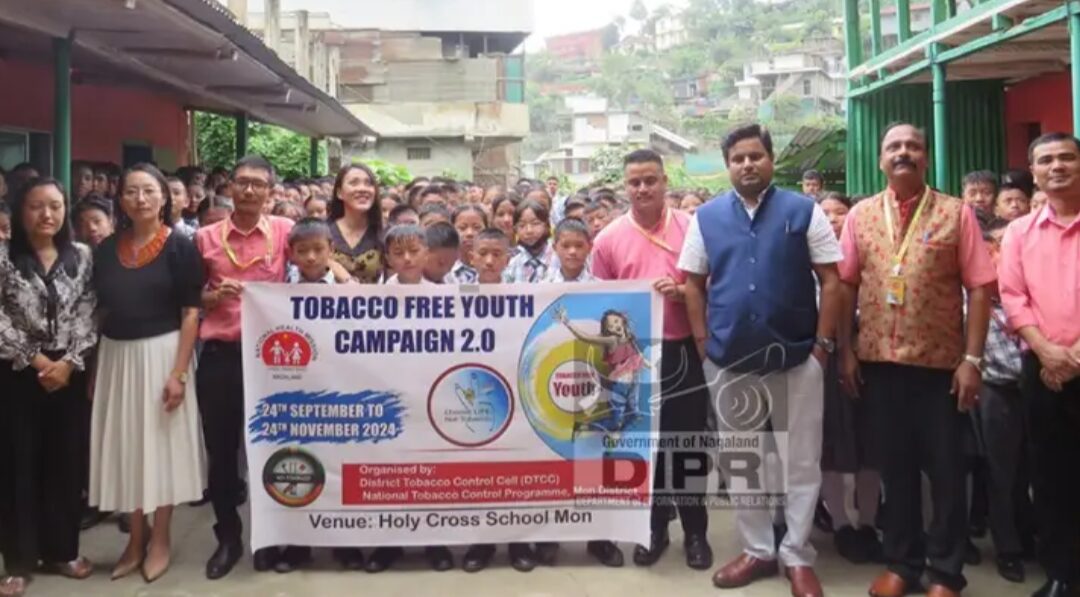In a significant step towards improving primary health care in Nagaland, the National Health Mission (NHM) and the Department of Health & Family Welfare, in collaboration with the Jhpiego-Nagaland Team, organised a comprehensive five-day training programme for staff nurses posted at Ayushman Bharat-Health and Wellness Centres. The event, which began on 30 April, 2024, aimed to equip nurses with the necessary skills to deliver effective Comprehensive Primary Health Care (CPHC) services.
The training programme targeted staff nurses from six districts in Nagaland: Mokokchung, Mon, Longleng, Kiphire, Dimapur, and Kohima. The primary focus was on the Expanded Packages of Services under CPHC for nurses stationed at Ayushman Bharat-Health & Wellness Centres – Primary Health Centres (PHCs). This initiative is part of a larger effort to strengthen the primary health care framework across the country, particularly in rural and underserved areas.
Also Read: India’s rubbish reckoning: A journey through the trash
During the inaugural function held at the conference hall of the Directorate of Health & Family Welfare in Kohima, Dr. Akuo Sorhie, the Mission Director of National Health, delivered a keynote address emphasising the crucial role of Health & Wellness Centres in improving health outcomes. She urged the participating nurses to commit to delivering quality health care and play a pivotal role in transforming the public health care delivery system in the state.
Dr. Sorhie also highlighted the importance of preventive measures against vector-borne diseases, especially with the approaching monsoon season. She encouraged the nurses to sensitise the community at the grassroots level about these preventive measures and the services available at health units.
The training modules covered various aspects of health care, focusing on community engagement and the management of non-communicable diseases, which are increasingly prevalent in these regions.
Also Read: Kohima students tackle air pollution in two-month program
The staff nurses will be trained on twelve expanded packages of services, including care in pregnancy and child-birth, neonatal and infant health care services, childhood and adolescent health care services, family planning, contraceptive services and other reproductive health care services, management of communicable diseases, national health programmes, general out-patient care for acute simple illnesses and minor ailments, screening, prevention, control and management of non-communicable diseases, care for common ophthalmic and ENT problems, basic oral health care, elderly and palliative health care services, emergency medical services including burns and trauma, screening and basic management of mental health ailments.
This training will also be taken as a part of Continuing Nursing Education (CNE), and the Nagaland Nursing Council (NNC) has awarded 24 credit hours for the trainee staff nurses participating in this programme.
Dr. Mereninla Senlem, the State Programme Officer of NHM, provided an overview of CPHC, stating that the programme is intended to reduce out-of-pocket expenses and bring healthcare closer to the doorstep of the people.
Also Read: GHSS Hakushang to welcome first Class XI batch in 2024
She also mentioned that, with the paradigm shift in the health scenario, non-communicable diseases have been added to the packages of service provided in the Health and Wellness Centre.
Dr. R Chubala Aier, the Additional Director and State Programme Officer of the National Vector Borne Disease Control Programme, informed that Nagaland is one of the best-performing states in the northeast towards the elimination of malaria.
She requested the participants to work towards the prevention of vector-borne diseases before the onset of monsoon in the state by sensitising people, especially at the grassroots, on preventive measures and the services available at health units.
Dr. Vizokholo Theyo, the State Programme Officer for the National TB Elimination Program (NTEP) & Pradhan Mantri National Dialysis Program (PMNDP), addressed the national goal of eliminating tuberculosis by 2025. She gave a brief insight on the Cough App, which is to be installed in all the Health and Wellness Centres by this year, through which any patients with a history of cough would be screened.
Also Read: KCCI, WDCCI call off shutter down, businesses reopen
Dr. Theyo also spoke on the Culture and Drugs Susceptibility Testing Lab (CDST Lab) established at NHAK and added that they are focusing more on the preventive approach to achieve the goal of universal health coverage and health for all.
The inaugural programme was chaired by Dr. Manyau, the Deputy Director of NHM, and concluded with a vote of thanks delivered by Dr. Khelito Zhimomi, the State Programme Officer of RMNCHA+N, NHM.
This training event is expected to have a significant impact on the quality of health care services provided at the grassroots level. Further training sessions are planned for nurses from the remaining districts, ensuring a comprehensive upskilling of health care professionals across the region.
The Ayushman Bharat scheme, under which this initiative falls, is a series of efforts aimed at strengthening health care infrastructure and service delivery in India. By focusing on primary health care and the continuous development of health care workers, the government aims to make health services more accessible and effective, particularly for rural and underserved populations, as the nation moves towards the goal of Universal Health Coverage.
The collaborative efforts of the NHM, the Department of Health & Family Welfare, and the Jhpiego-Nagaland Team serve as a shining example of the power of partnership in driving positive change in the health care sector.
